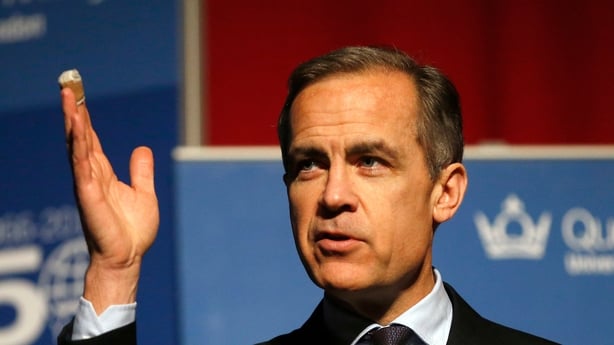Staff at the Bank of England will begin voting today on whether to hold a strike this year in protest at below-inflation pay rises, union sources told Reuters.
Unite, Britain's biggest union, is consulting members on whether to take industrial action at the 323-year-old Bank, which employs around 3,600 people, after they were awarded a 1% pay rise for this year.
The union represents workers in security, catering, legal, HR and other services at the Bank of England.
It said the pay offer was "derisory" and the second year in a row that employees have faced a pay offer that is lower than inflation, resulting in a fall in income in real terms.
Industrial disputes at the Bank of England are rare. In 1994, IT staff at the Bank were balloted for strike action after a pay dispute but voted against it.
"The bank's disgraceful snub of low paid staff stinks of arrogance and represents an organization thoroughly out of touch with the reality of the pressure staff face meeting their costs of living," said Mercedes Sanchez, a Unite regional officer.
The Bank of England declined to comment.
Industrial action would be potentially embarrassing for the central bank, whose policymakers have focused heavily on the prospects for wage growth.
The Bank of England's latest economic forecasts show wage growth is likely to pick up significantly over the next couple of years, but it has previously been overly optimistic about the pace of pay increases.
Pay rises for public sector workers in Britain have been capped by the government at 1%.
Although this does not apply to the independent Bank of England, it operates in an environment of pay restraint for public officials.
Workers in Britain suffered a long hit to their spending power after the global financial crisis, which eased only briefly when falling oil prices took inflation to zero in 2015.
Real earnings are below their levels of 10 years ago and inflation looks set to hit 3% this year, pushed up by the pound's fall since the Brexit vote and the oil price rebound.
Britain faces the prospect of a wave of strikes in different industries this summer, with nurses and teachers threatening to stop work over issues ranging from pay deals to pensions.
Unite said some Bank of England staff earn less than £20,000 a year and implementing a 1% pay rise will potentially leave them and their families facing financial hardship.

Bank of England Governor Mark Carney has received an annual salary of £480,000 since joining the bank in 2013, as well as an annual accommodation allowance of £250,000.
He has declined pay increases since joining.
The ballot will close on June 21 and if members vote in favour of strike action this could begin in the summer or autumn, the sources said.

